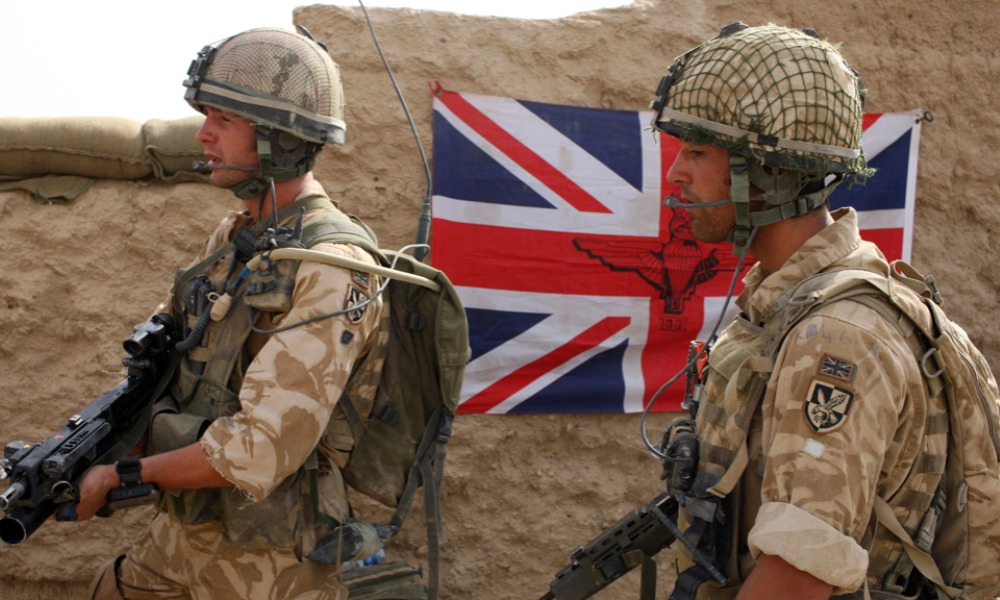UK troops should stay until peace talks are over: House of Lords

A House of Lords committee on Tuesday recommended that British troops should stay in Afghanistan until peace talks with the Taliban are over and urged the British government to shape its own policy rather than simply follow the United States.
Releasing their report on “The UK and Afghanistan”, the International Relations and Defence Committee criticizes the lack of clarity on UK policy towards Afghanistan, expresses concern over the premature withdrawal of troops by the US, and says the British government will have to carefully consider its approach to the Taliban if a power-sharing agreement is reached at the peace talks.
While only around 850 UK troops are currently stationed in Afghanistan, the UK is the third largest bilateral donor to Afghanistan, providing £167 million in official development assistance in 2020–21.
The Committee’s report comes after their inquiry which explored the UK’s diplomatic, military and aid strategy for Afghanistan, including scrutiny of the new Foreign, Commonwealth and Development Office (FCDO), and the Ministry of Defence (MoD).
It also considered the UK’s work with international partners such as the US, NATO, and the Afghan government.
Commenting on the report, Baroness Anelay of St Johns, Chair of the Committee, said:
“Afghanistan’s relative prioritisation as a UK national security issue has slipped since 2010, but the scale of the challenges facing the country, and their potential impact on UK interests, have not diminished.
“The Afghan state remains very fragile, while the Taliban’s insurgency continues, and terrorist groups, including al-Qaeda and Islamic State Khorasan Province (Daesh), operate in the country. Afghanistan is the source of 95 percent of heroin on UK streets.
“This is a critical time for Afghanistan, with peace talks in Qatar having resumed over the weekend and an unacceptably high level of violence continuing to afflict an already poor and unstable country.
“The (British) Government must engage urgently with the incoming Biden Administration on the strategy for Afghanistan, and emphasise to the US and to NATO Allies the importance of their ongoing presence in Afghanistan until a peace deal is reached. The Government should be front and centre in calling for a multinational approach to Afghanistan within NATO, addressing regional stability, counter-terrorism and countering narcotics production and trafficking,” she said.
As a major aid donor to Afghanistan, she said the Committee was concerned that the British Government’s decision to renege on its commitment to spend 0.7 percent of gross national income on aid from 2021 could have a disproportionately negative impact on Afghanistan.
The report meanwhile found that the UK has shown little inclination to exert an independent voice on policy on Afghanistan and has followed the lead of the US.
The Committee stated it also found few traces of a coherent UK policy approach to Afghanistan and urged the British government to call for a multi-national approach to Afghanistan within NATO – focusing on the UK’s objectives of regional stability, counter-terrorism and countering narcotics production and trafficking.
The report stated that the ongoing presence of US and NATO troops in Afghanistan is essential to the Afghan government’s military strength and negotiating position at the talks in Doha and emphasised the urgency of UK engagement with the incoming Biden Administration on Afghanistan.
“The UK must make clear to the US and NATO allies the crucial role they play in maintaining the Afghan government’s leverage in the peace talks,” the report read.
The inquiry also found that the Taliban has not demonstrated that it has changed, and “it is ideologically opposed to the progress on human rights made since 2001.”
According to the report, while the Taliban “is engaging with the peace talks, its commitment to a negotiated settlement and to power-sharing remains unclear.
“The Committee concludes the Government should carefully consider how it will handle its future relationship with the Taliban in the event of the peace talks resulting in an agreement, in the context of future UK security assistance and aid to an Afghan government with Taliban representation.” the report read.
Human rights were also found to be an issue, particularly the rights of women and minorities, which the Committee found to be in danger of being a casualty of the Afghan peace talks.
“The Committee welcomes the UK’s enduring commitment to human rights, but regrets that the UK is unlikely to have sufficient leverage to ensure these rights are protected.”
